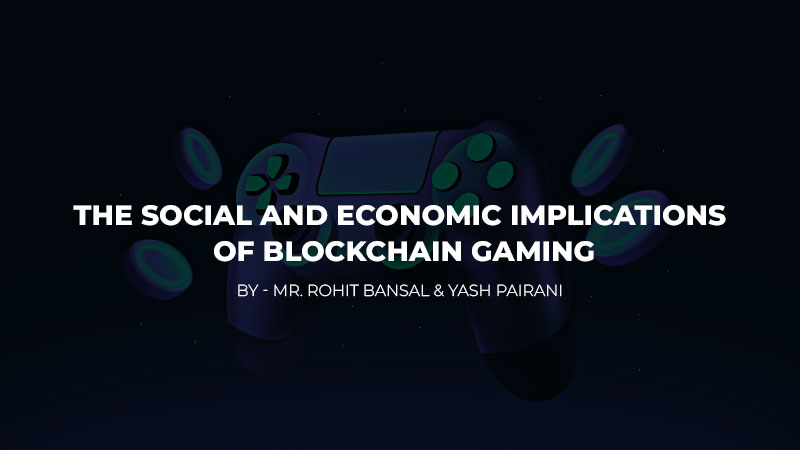In recent years, blockchain technology has made its way into the gaming industry, creating a new niche known as blockchain gaming. Blockchain gaming refers to games that are built on blockchain technology, which allows for secure, decentralized, and transparent transactions. This emerging industry has significant social and economic implications, and its growth is changing the gaming landscape in several ways.
One of the most significant social implications of blockchain gaming is the way it allows players to truly own their in-game assets. Unlike traditional gaming, where items are typically owned and controlled by the game’s developer or publisher, blockchain gaming enables players to have complete ownership and control over their assets. This means that players can buy, sell, trade, and use their in-game assets outside of the game’s ecosystem, creating real-world value for virtual items.
This ownership model has created a new economy within blockchain gaming, with players buying and selling assets on decentralized marketplaces. It has also created new opportunities for players to earn cryptocurrency by participating in games, completing quests, or contributing to the development of the game itself. As a result, blockchain gaming has created a new model for gaming, where players are no longer just consumers but active participants in the game’s economy.
The economic implications of blockchain gaming are significant, as it creates a new revenue stream for game developers and publishers. By leveraging blockchain technology, game developers can create new revenue models, such as transaction fees, that allow them to monetize their games in ways that were not possible before. This has led to the emergence of new business models, such as play-to-earn games, where players can earn cryptocurrency by playing the game.
Blockchain gaming has also created new opportunities for game developers to fund their projects through initial coin offerings (ICOs), which allow developers to raise capital by selling cryptocurrency to investors. This has led to the emergence of a new class of blockchain gaming startups, that are creating innovative games and platforms that leverage blockchain technology.
However, the growth of blockchain gaming has also raised concerns about the environmental impact of blockchain technology. The energy consumption required for blockchain transactions is high, and this has led to criticism of blockchain gaming as a wasteful and environmentally harmful activity. As a result, some blockchain gaming companies are exploring alternative energy sources, such as renewable energy, to power their platforms.
We got in touch with some experts to under their viewpoints on the same:
Mr. Yash Pariani, Founder and CEO at House of Gaming believes that Blockchain gaming has the potential to revolutionize the gaming industry by providing a new way for gamers to engage with each other and earn real value from their gameplay. This innovation has significant social and economic implications that could shape the future of gaming. On the social front, blockchain gaming allows for more transparent and decentralized gaming experiences, where players can trust that the game mechanics are fair and secure. This can help reduce instances of cheating and create a more enjoyable gaming experience for all. Additionally, blockchain gaming has the potential to create more vibrant gaming communities, where players can connect and collaborate in new ways. From an economic perspective, blockchain gaming introduces the possibility of earning real value from playing games. Players can earn cryptocurrency or other digital assets through their gameplay, which can then be traded or sold. This creates new opportunities for gamers to earn income and participate in a new digital economy. Overall, blockchain gaming has the potential to bring significant social and economic benefits to the gaming industry, and it will be exciting too.
Another Industry expert, Mr. Rohit Bansal, Founder and Director of Super4 said Blockchain gaming has the potential to disrupt traditional models of gaming by creating decentralized and secure platforms for in-game economies and ownership of virtual assets. This could lead to a shift in power from centralized game developers to individual players, allowing for a more equitable distribution of wealth within gaming communities. Additionally, blockchain gaming may create new opportunities for cross-game interoperability and player-driven content creation, potentially increasing player engagement and revenue generation. However, challenges such as scalability and adoption remain, and further research is needed to fully understand the social and economic implications of this emerging technology.
In conclusion, blockchain gaming is an emerging industry with significant social and economic implications. Its ownership model has created a new economy within gaming, where players can buy, sell, and trade virtual assets. It has also created new revenue streams for game developers and publishers, and new opportunities for players to earn cryptocurrency. However, the industry must also address concerns about its environmental impact to ensure its sustainability and growth in the long term.
